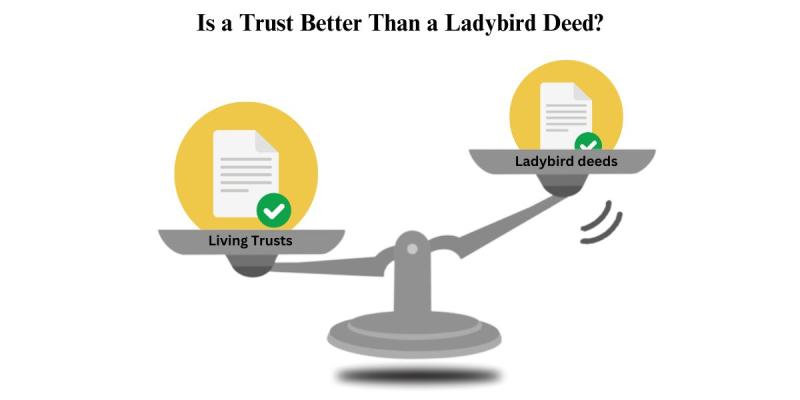Navigating the Legal Maze: Unraveling the Florida Probate Rules

As an experienced legal professional, I understand the complexities of navigating the probate system in Florida. Probate is the legal process of handling a deceased person's belongings. It can be overwhelming for those who don't know much about the law. This article explains probate administration in Florida to help you understand the process better.
The Importance of Knowing the Florida Probate Rules
Knowing the Florida probate rules ensures a smooth and efficient probate process. These rules outline the legal requirements, procedures, and deadlines for administering an estate. Learn Florida probate rules to avoid mistakes, speed up the process, and protect the deceased's beneficiaries and heirs.
Legal Requirements for Probate Administration in Florida
The legal requirements for probate administration in Florida are comprehensive and detailed. The topics covered include filing the will, choosing a personal representative, informing creditors, handling assets, and dividing the estate.
Each topic is important in the process of estate planning and distribution. Filing the will ensures that the executor carries out the deceased's wishes. Choosing a personal representative is crucial for managing the estate. Informing creditors is necessary to settle any outstanding debts.
Handling assets involves distributing property and possessions. Dividing the estate ensures that beneficiaries receive their rightful inheritance. Not following these rules can cause legal issues and delays, so it's important to know and follow the Florida probate rules.
Key Terms and Definitions in Florida Probate Rules
To understand Florida probate rules, it's important to know the key terms and definitions used in the process. Some of the most important terms include:
Personal Representative: The individual or institution responsible for the deceased's estate administration. In some parts of Florida, people call this personal representative an executor or executrix. A personal representative has a certain set of roles and responsibilities that they must adhere to.
Testate: In Florida when a person dies leaving a valid will is called dying testate. In such cases, the asset distribution of the deceased takes place as per his wishes mentioned in the will.
Intestate:
Intestate is when a person dies without a valid will in florida. In such cases, the state overtakes the person's estate and the Florida Intestacy Laws distribute the person's assets.
Understand Intestate vs Testate Estates and how assets are distributed without a will.
Creditor: An individual or organization to whom the deceased owed money. In Florida, the personal representative manages the estate of the deceased person. They are responsible for paying any debts owed to creditors. The personal representative pays the debts from the deceased estate.
Beneficiary: A person or entity named in the will to receive a portion of the deceased's estate.
Familiarizing yourself with these and other relevant terms can greatly improve your understanding of the Florida probate rules.
The Probate Process in Florida
The probate process in Florida typically involves the following steps:
- Filing the Will: The will must be filed with the appropriate probate court.
- Appointment of a Personal Representative: The court will appoint a personal representative to administer the estate.
- Notification of Creditors:
Notify creditors of the deceased's passing and allow them to file claims against the estate.
4. Asset Management: The personal representative is responsible for identifying, gathering, and managing the deceased's assets.
5. Payment of Debts and Taxes: The personal representative must pay any outstanding debts and taxes owed by the deceased.
6. Distribution of the Estate:
After someone passes away, the executor gives their assets to the people named in their will. If the deceased person does not have a will, their assets go to their heirs.
Understanding the steps involved in the Florida probate administration can help you navigate the legal requirements more effectively.
Common Challenges Faced in Navigating the Florida Probate Rules
Navigating the probate rules can be a complex and challenging task, even for experienced legal professionals. Some of the most common challenges include:
- Interpreting the Rules:
The probate rules can be dense and technical, making it difficult to interpret and apply them correctly.
2. Deadlines and Timelines:
Strict deadlines and timelines must be met throughout the probate process, and failure to do so can result in legal complications.
3. Asset Identification and Management: Identifying and properly managing the deceased's assets can be a time-consuming and complex process.
4. Disputes and Litigation: Conflicts between beneficiaries, creditors, or other parties can lead to legal disputes and litigation, further complicating the probate process.
Recognizing these common challenges can help you better prepare for and address them during the probate process.
Hiring a Florida Probate Administration Attorney
Given the complexities in navigating the probate rules, it is often advisable to hire a Florida probate administration attorney. A probate attorney can assist with the legal process and safeguard the interests of the deceased's beneficiaries and heirs.
When hiring a probate lawyer, ensure they have extensive experience in Florida probate law. Make sure they are knowledgeable about the state's rules. Look for a lawyer with a track record of winning cases. Important to pick a lawyer who communicates well, listens to your needs, and gives personal attention to your case.
Tips for Successfully Navigating the Florida Probate Rules
To successfully navigate the Florida probate rules, consider the following tips:
- Familiarize Yourself with the Relevant Laws and Regulations:
Carefully study the Florida Probate Code and other laws to understand the legal rules and procedures.
2. Develop a Comprehensive Plan:
Make a plan for probate with timelines, deadlines, and steps to fulfill duties as the personal representative.
3. Maintain Meticulous Records: Carefully document all actions taken, decisions made, and communications with beneficiaries, creditors, and other parties involved in the probate process.
4. Communicate Effectively: Maintain open and transparent communication with all stakeholders, including beneficiaries, creditors, and the probate court, to ensure a smooth and efficient process.
5. Seek Professional Guidance:
Consider hiring a probate administration attorney or other legal professionals to provide expert advice and support throughout the probate process.
By following these tips, you can navigate the Florida probate rules with greater confidence and efficiency.
Conclusion
Navigating the Florida probate rules can be a complex and challenging process. With the right knowledge, planning, and support, you can navigate the legal requirements thus protecting the interests of the deceased's beneficiaries and heirs.
By understanding the key aspects of probate administration, recognizing common challenges, and utilizing available resources, you can navigate the legal maze with confidence and efficiency.
If you're facing the complexities of probate administration in Florida, consider consulting with an experienced probate administration attorney who can provide personalized guidance and support. Contact us today to schedule a consultation and learn how we can help you navigate the Florida probate rules.









Comments